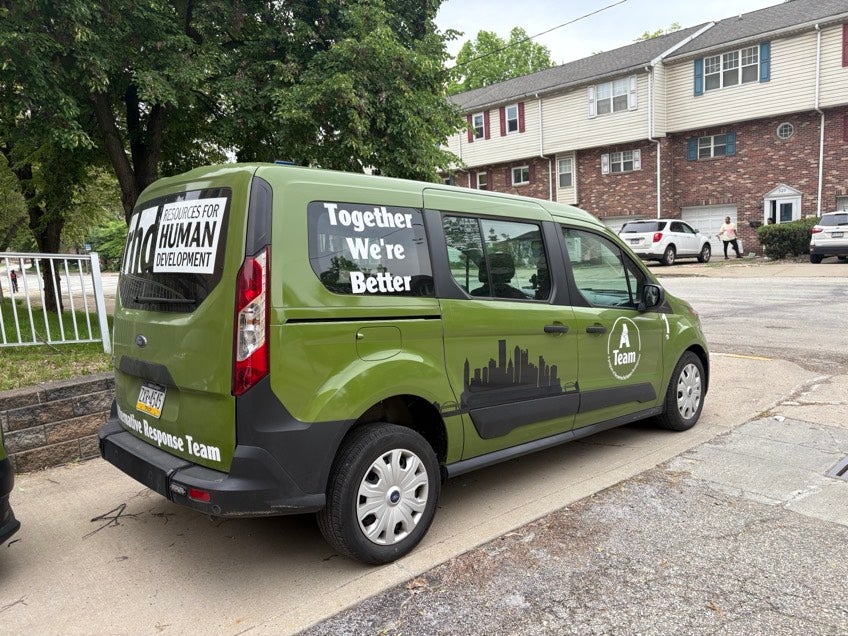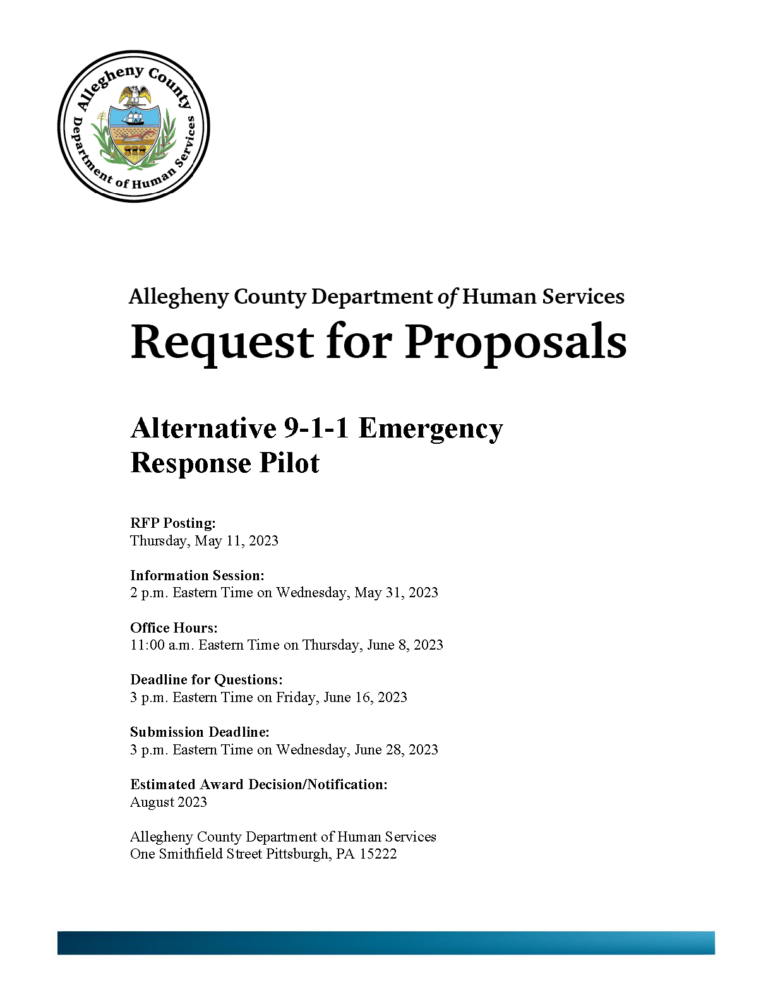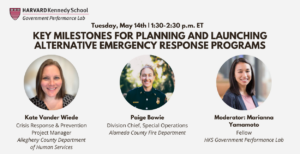Launching Alternative Emergency Response in Allegheny County

- Since late 2020, the Allegheny County Department of Human Services (ACDHS) has been working to improve the crisis prevention and response system for people experiencing behavioral health and human service crises.
- In 2021, DHS began researching alternative 911 emergency response programs in collaboration with Allegheny County Emergency Services (ACES) and local police agencies to address community concerns about the use of law enforcement in emergency response to behavioral health crises.
- In 2022, the GPL began working with the DHS through our Alternative 911 Emergency Response Implementation Cohort to support the launch of a pilot program. The initial program goals were to:
- De-escalate crises in the community.
- Reduce the number of unnecessary ambulance rides and emergency room visits.
- Reduce the time law enforcement spends on behavioral health-type 911 calls.
- Reduce the chance of arrest and incarceration for low-level, non-violent offenses that can often be related to mental and behavioral health needs.
- Support connections to service providers.
- In 2023, informed by the GPL’s results-driven contracting best practices, ACDHS designed a Request for Proposal to identify a service provider, resulting in four proposals. Throughout 2023 and 2024, the GPL helped convene DHS, ACES, and local police agencies to design key pilot features, including:
- Call eligibility criteria
- Triage procedures
- Communication pathways between responder agencies
- Training programs for alternative responders and law enforcement
- In October 2024, DHS, ACES and local police agencies launched the A-Team in two municipalities in Allegheny County – a pilot program managed by Resources for Human Development (RHD) – to send trained behavioral health teams to 911 calls related to mental and behavioral health, quality of life, and human services to support individuals in crisis, including distributing goods, creating safety plans, and arranging transportation.
How the GPL Supported:
- Facilitated stakeholder working sessions to design the call eligibility criteria and program protocols before pilot launch.
- Designed impact metrics based on program goals to facilitate data-driven performance management (i.e., number of referrals made to substance use services, number of emergency room visits).
- Implemented a process to review the A-Team’s key impact metrics regularly to understand program performance trends and develop action steps to achieve program goals.
- Coached program leadership on how to discuss program impact with stakeholders to communicate outcomes and plan for program expansion.
- Designed training for law enforcement officers on their roles and responsibilities in the operations of the A-Team pilot to build shared understanding of program goals and prepare staff for implementation.
Results:
- After evaluating responses to the RFP, ACDHS awarded a $2.5 million contract to Resources for Human Development.
- As of May 2025, the A-Team serves 12 of Allegheny County’s 130 municipalities, with a combined population of over 80,000 residents.

Through the Alternative 911 Emergency Response Implementation Cohort, the GPL supported the Allegheny County Department of Human Services in releasing an RFP to identify a vendor to run the county’s Alternative Response program pilot, A-Team.

Hear insights from panelist Kate Vander Wiede, Crisis Prevention and Response Project Manager at the Allegheny County Department of Human Services, on Key Milestones for Planning and Launching Alternative Emergency Response Programs.
Having the Government Performance Lab's support and expertise was essential to building buy-in for our alternative response model. Our law enforcement and public safety leaders appreciated GPL's coaching through the program planning process, such as deciding which calls are best suited for alternative response and providing guidance on cross-training response staff. The GPL's contributions helped ensure a , cohesive implementation and our alternative response is stronger because of the GPL's involvement.Erin Dalton
Director of Allegheny County Department of Human Services